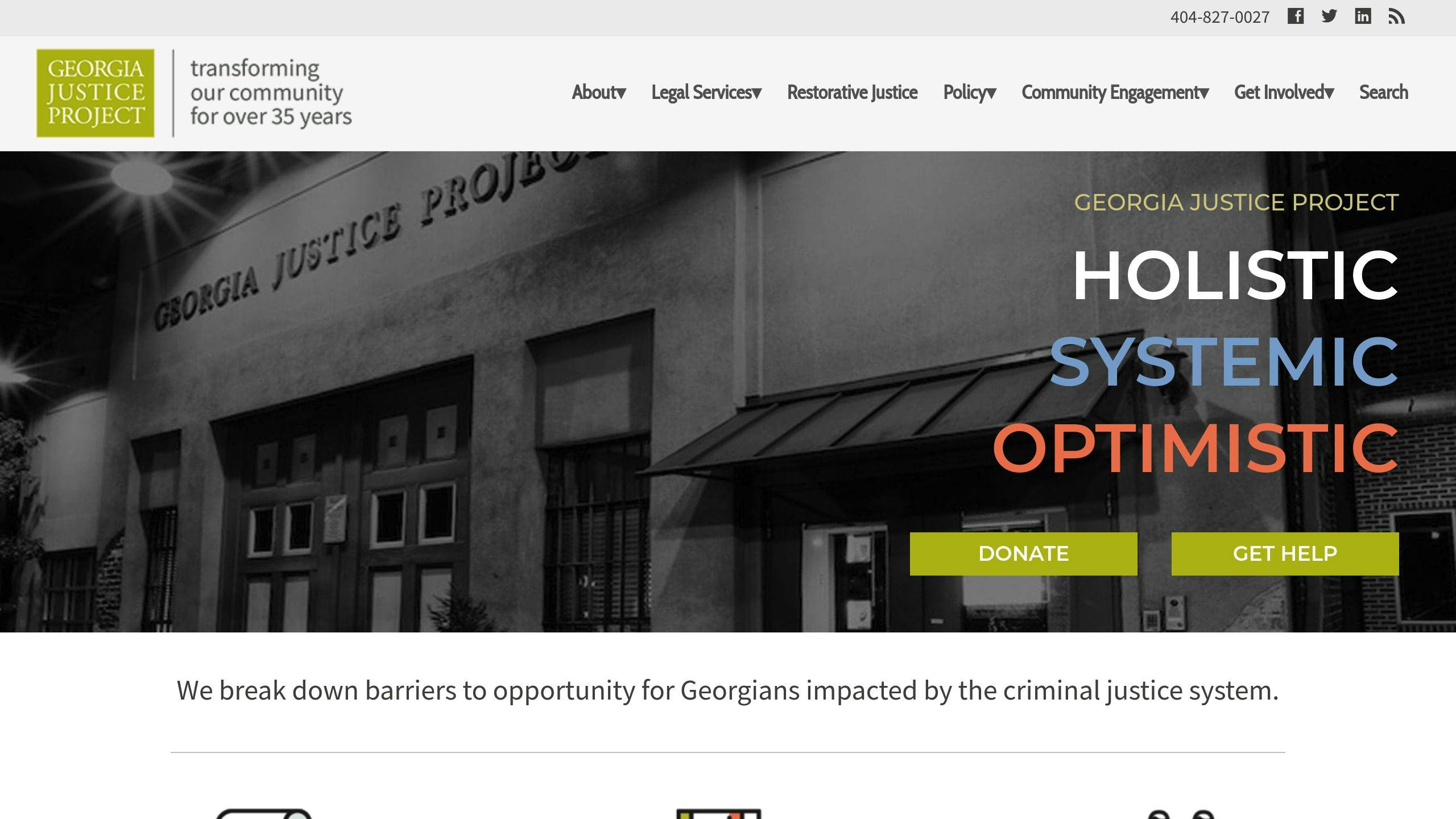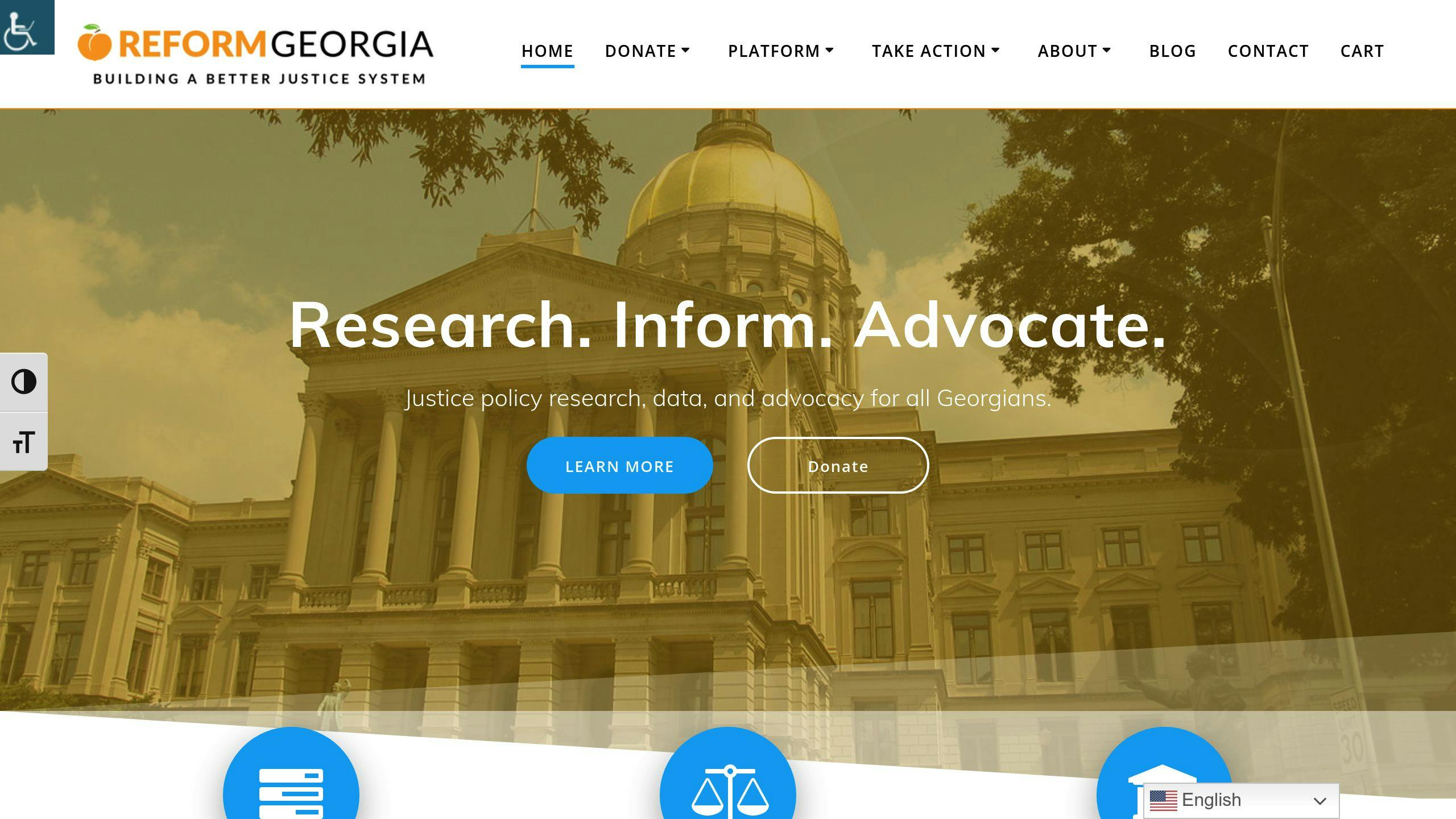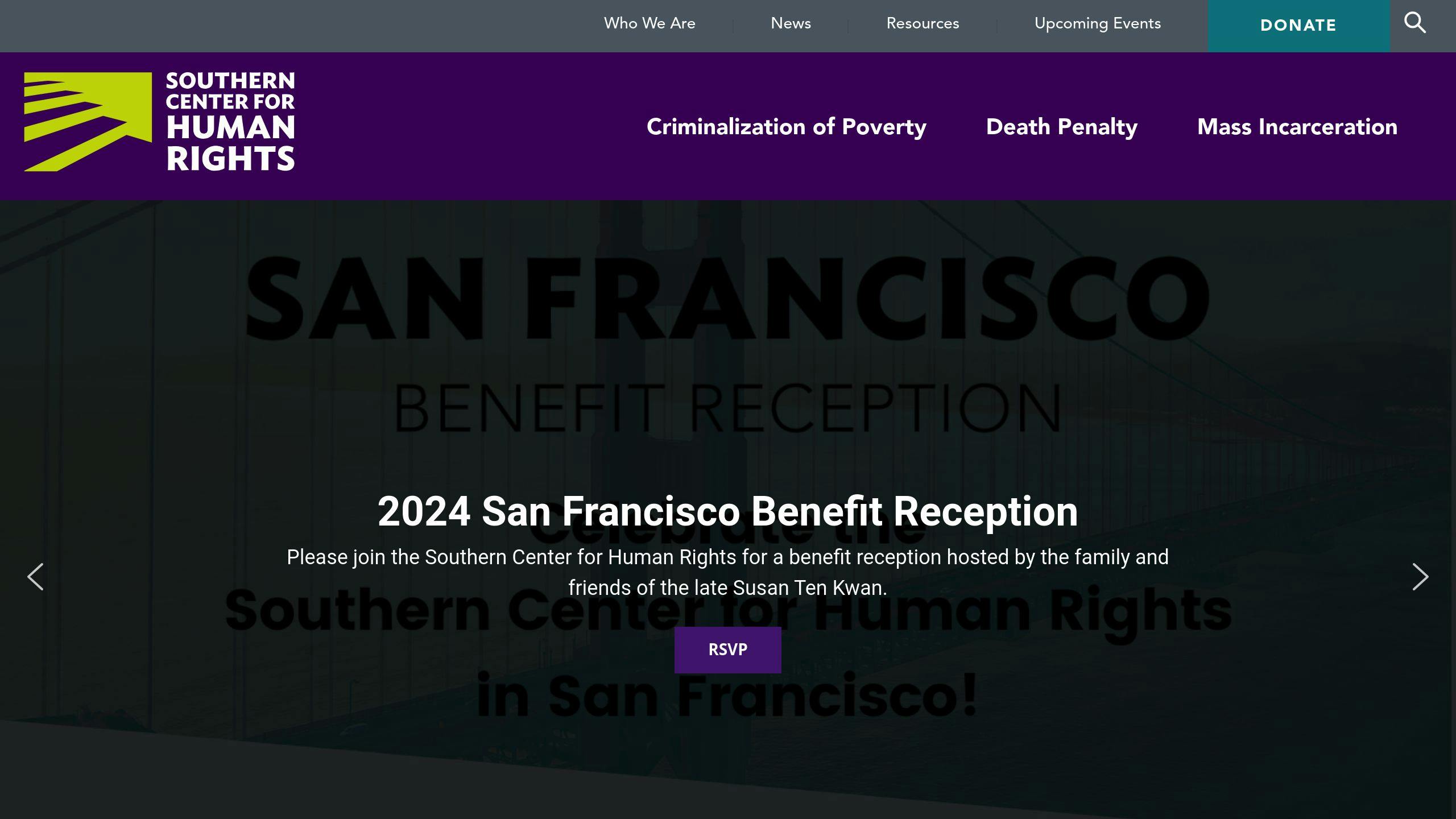Want to effectively communicate with Georgia prison officials? Here’s how to get started:
- Set Clear Goals: Know what you want to achieve before reaching out. Gather all relevant details like dates, incident reports, and previous attempts to resolve the issue.
- Stay Respectful and Clear: Use polite, professional language. Stick to facts, clearly state your purpose, and include your contact details for follow-up.
- Choose the Right Channel: Use email for non-urgent matters, phone for urgent issues, and letters for formal complaints. Each method has its advantages.
- Follow Up: Keep records of your communication and follow up if you don’t get a response within a reasonable time.
- Use Advocacy Tools: Leverage resources like templates from advocacy organizations and tools like Impact AI for streamlined communication.
Key Tip: Contact the Ombudsman Unit for assistance in addressing concerns within the Georgia Department of Corrections (GDC). They act as a bridge between the public and the corrections system.
Related video from YouTube
Understanding How the Georgia Prison System Works
Knowing who to reach out to within the Georgia Department of Corrections (GDC) can make a big difference in addressing concerns effectively. By directing your issues to the right individuals, you increase the chances of getting a timely and helpful response.
Structure and Challenges
The GDC manages state prisons, probation offices, and correctional facilities through a centralized system. At the top, the Commissioner oversees Division Directors, Regional Directors, and Wardens. Each level handles specific tasks, from broader policies to facility-specific issues. The Policy and Procedures Administrator is a key figure for clarifying rules, which can be helpful when citing policies in your communication.
However, navigating this system isn’t always easy. The GDC’s large size and complex bureaucracy can lead to delays and lack of transparency. Families often encounter obstacles like high phone costs and slow response times. Phone calls may go unanswered, and written correspondence can take weeks – or even months – to get a reply.
Tips for Effective Communication
The Ombudsman Unit serves as a resource for addressing concerns within policy limits. While it doesn’t have the authority to overturn decisions made by Wardens or facility staff, it plays an important role in providing oversight and helping resolve issues. To communicate effectively, focus on contacting the right authority, reference relevant policies, and keep detailed records of all interactions. Online tools like Find an Offender and Find a Facility can help you identify the correct facility or individual to contact.
5 Steps to Effectively Contact Georgia Prison Officials
Understanding how the Georgia prison system operates is crucial for effective communication. Follow these steps to make your outreach more impactful.
1. Set Clear Goals Before Reaching Out
Know exactly what you want to achieve before contacting officials. For example, if you’re addressing issues like medical care, gather all necessary details – such as dates, incident reports, and records of previous attempts to resolve the issue. This preparation ensures your case is presented clearly and backed by facts.
2. Write Messages That Are Respectful and Clear
Craft messages that are polite, professional, and straight to the point. A strong message should:
- Begin with a professional greeting
- Clearly state the purpose in the opening paragraph
- Stick to facts and avoid overly emotional language
- End with a specific request or question
- Include your contact details for follow-up
3. Choose the Best Communication Channel for Your Issue
The Georgia Department of Corrections provides several ways to get in touch. Here’s how to decide:
- Email: Best for non-urgent matters or when you need a written record. Responses typically take 3-5 business days.
- Phone: Ideal for urgent concerns that require immediate attention.
- Letters: Useful for formal complaints or when providing detailed documentation. Expect a response within 2-4 weeks.
Each method has its advantages. For instance, emails create a reliable digital trail, while letters are better for more formal or detailed issues.
4. Use Tools and Follow Up Effectively
Leverage resources like Impact AI’s platform, which offers templates tailored for Georgia prison advocacy. These templates help you maintain professionalism and address specific topics effectively. Additionally, organizations like the Southern Center for Human Rights provide further guidance for respectful and well-informed communication.
If you don’t receive a response, wait at least a week before following up. Keep a record of dates, names, and reference numbers to track your efforts. If standard channels don’t work, consider escalating the issue through the Ombudsman Unit.
While persistence is important, always ensure your advocacy remains ethical and respects privacy boundaries.
sbb-itb-25113a2
Ethical and Privacy Guidelines for Communication
Advocating within the Georgia prison system requires a strong commitment to ethics and privacy. The Georgia Department of Corrections (GDC) has clear protocols to safeguard inmates’ rights and uphold the system’s integrity.
Respect Privacy and Confidentiality
Protecting privacy is key to ensuring the safety and dignity of everyone involved, especially inmates. The GDC’s Ombudsman Unit provides a secure framework for communication while upholding privacy standards. To handle sensitive information properly:
- Use encrypted emails or registered mail for confidential documents.
- Obtain written consent before sharing any personal details.
- Keep communication records secure in password-protected files.
Maintaining privacy is essential, but using advocacy tools responsibly can make your efforts even more effective.
Use Advocacy Tools Responsibly
Guidelines for Using Advocacy Tools
| Aspect | Requirement |
|---|---|
| Data Accuracy | Double-check all information before submission. |
| Tool Selection | Stick to GDC-approved communication channels. |
| Documentation | Keep detailed logs of your communications. |
Digital tools can streamline advocacy, but ethical use is non-negotiable. When using these resources:
- Send confidential documents through encrypted emails or secure mail services.
- Make sure your methods align with the latest GDC guidelines.
- Follow the GDC’s contact hierarchy to address concerns properly.
For additional support, organizations like the Southern Center for Human Rights offer valuable resources and guidance to help you navigate these communications effectively.
Helpful Resources for Advocacy
The following organizations provide tools and support to help advocates navigate the challenges of Georgia’s prison system. Here are three organizations offering key resources for advocacy:
Georgia Justice Project

The Georgia Justice Project (GJP) offers legal clinics, advocacy tools, and a support network for families dealing with the prison system. Their website features templates and an updated contact directory specifically for Georgia’s correctional facilities.
Reform Georgia

Reform Georgia provides policy briefs, advocacy toolkits, and public contact directories to assist in pushing for reforms in Georgia’s prison system. Their resources are geared toward organizing campaigns for systemic change.
Southern Center for Human Rights

The Southern Center for Human Rights (SCHR) works to improve prison conditions through:
- Legal support and documentation
- Pre-written templates for official correspondence
- Online workshops on advocacy strategies
SCHR emphasizes the ongoing challenges families face in staying connected to incarcerated loved ones. As noted in their advocacy guide:
"The struggle to stay connected to imprisoned loved ones is made harder by the GDC’s failure to provide families with useful information."
Digital Advocacy Support
Impact Justice AI’s platform (impactjustice.ai) offers AI-powered tools for prison reform advocacy. These include customizable email templates and delivery confirmation features tailored to Georgia’s prison system.
Conclusion: Using Communication to Support Prison Reform
Communicating effectively with Georgia prison officials calls for a thoughtful and respectful approach to drive change. Knowing how the Georgia Department of Corrections (GDC) operates and using digital tools can help advocates address systemic challenges and build trust with officials.
Modern tools, like Impact AI’s platform, can streamline advocacy efforts. Features such as customizable email templates and delivery confirmations tailored for Georgia’s prison system make the process more efficient. Pairing these tools with thorough documentation ensures a well-organized and professional approach.
Advocacy organizations also play a key role by offering resources and guidance to keep communication professional and focused. Their support helps advocates stay on track while respecting privacy and confidentiality.
Persistence and professionalism are essential for successful advocacy. Keeping detailed records of interactions and using the tools and resources at hand allows advocates to push for meaningful prison reform. By combining strategic communication with the right tools, advocates can make a real difference in improving Georgia’s prison system.

